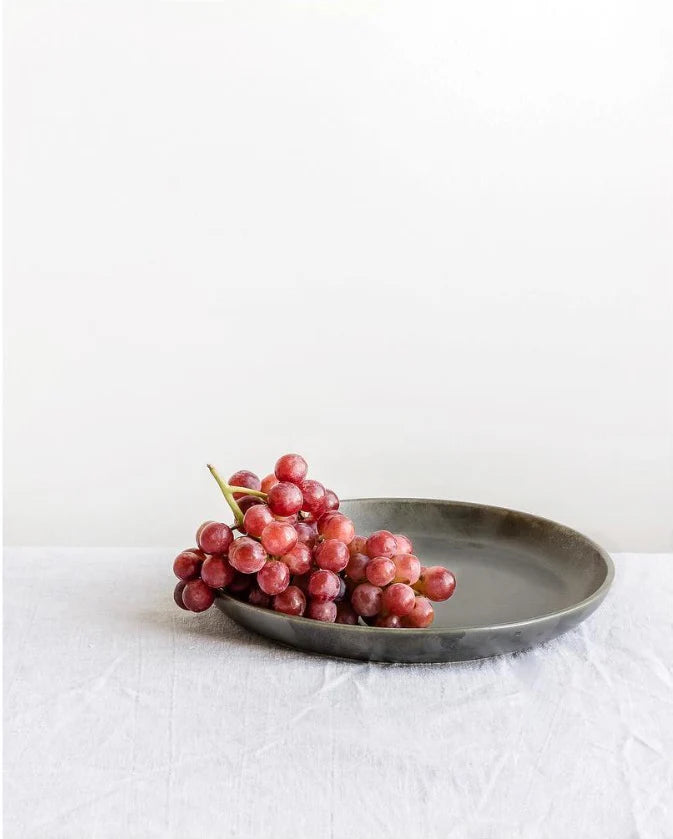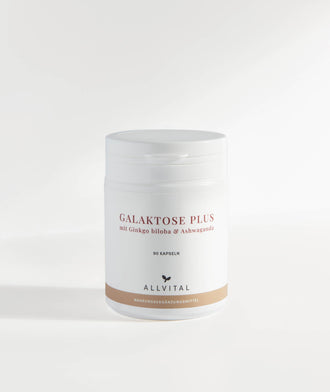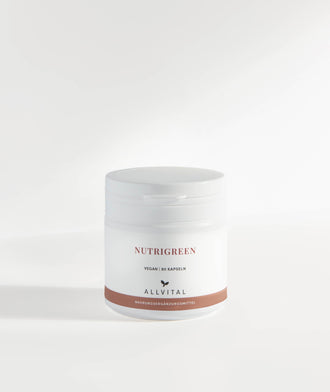
Polyphenols - for an extra portion of superfood!
Our diet plays a key role in our health and well-being. In fact, Hippocrates once said: "Let food be thy medicine and medicine be thy food."A healthy diet contains more than just vitamins and minerals
A healthy diet contains important vitamins and minerals that are essential for our bodies to function properly. However, the health-promoting effects of so-called phytonutrients ("phyto" [Greek] = plant or vegetable) are less well known. They are found in fruit and vegetables, but also in nuts, seeds, and cereals.
Phytonutrients are considered secondary plant substances, i.e., they are not essential nutrients. In plants, they serve as a defence against diseases, pest infestation or predators and regulate growth. They also give plants their colour and flavour.
What phytonutrients are there?
Phytonutrients can be categorised into diverse groups, of which carotenoids and polyphenols are the best known. Beta-carotene and astaxanthin are well-known carotenoids, while resveratrol, quercetin, flavanoids and tannins are the best-known representatives of polyphenols.
Polyphenols neutralise free radicals
Polyphenols have a complex structure and develop strong antioxidant properties in the body. The main effect of polyphenols is therefore to neutralise free radicals and reduce oxidative stress. In this way, polyphenols can counteract cell damage, which in turn has a positive effect on the ageing process and on general health.
In addition to their antioxidant properties, polyphenols also have an anti-inflammatory effect and support the immune system. They also stimulate fat burning and contribute to maintaining healthy blood vessels. Each polyphenol has its own unique profile.
What polyphenols are there and what do they contain?
Polyphenols are found in many different plant foods. They are found in fruit and vegetables, but also in green tea, cocoa, and nuts. Red wine (tannins) and dark chocolate (catechins) also contain polyphenols but should of course not be the sole source of polyphenols in a balanced diet. Some of the best-known polyphenols are
- Resveratrol: found in red grapes, wine, peanuts, and berries; known for its antioxidant and anti-inflammatory properties. As a nootropic, resveratrol is also said to have an activating effect on the brain.
- Quercetin: belongs to the flavonoid group and is found in onions, apples, berries, grapes, citrus fruits, kale, and tea. Quercetin has antioxidant and anti-inflammatory effects and is said to have a positive effect on degenerative signs of ageing as a so-called senolytic.
- Catechins: are found in cocoa, but also in green tea, apples, and berries. They also have strong antioxidant properties that are associated with various health benefits. Epicatechin is also associated with positive effects on the blood vessels.
- Anthocyanins: the pigments are responsible for the red, purple, and blue colours in fruits and vegetables such as blueberries, raspberries, cherries, red grapes and beetroot or purple potatoes. They have antioxidant and anti-inflammatory properties. In addition, a positive effect on sugar metabolism and a protective effect on type 2 diabetes has recently been described.
Of course, this list is not exhaustive and there are many other polyphenols with different properties. A varied diet with a variety of polyphenol-rich foods is the best way to benefit from the health-promoting effects. To obtain the greatest possible variety of polyphenols, it is recommended to eat fruit and vegetables in all the colours of the rainbow.
Organic is better
The amount and type of polyphenols in food can also vary depending on the degree of ripeness, growing conditions, and processing methods. As phytonutrients (and therefore also polyphenols) are important in plants for defence against diseases, parasites, and pest infestation, among other things, they are found in the peel and outer layers of fruit and vegetables. Generally, plants today contain fewer phytonutrients than heritage veriaties. Organically grown fruit and vegetables are far less contaminated with pesticides and contain more phytonutrients than food from conventional cultivation and can therefore be considered more valuable for our health.
Food supplements with polyphenols
Despite a varied, plant-based diet, the optimum amount for the health-promoting effects of polyphenols can often not be achieved, as foods no longer contain the same amount of phytonutrients as they used to. It can therefore be useful and beneficial to supplement the diet with concentrated polyphenols.
At Allvital, we offer you various compositions of food supplements with phytonutrients and polyphenols, which can be selected according to your individual needs and can also be combined with each other. Green Tea Complex contains the largest amount of polyphenols per daily intake, which are combined with four amino acids and beta-glucans to form a harmonious blend. Nutrigreen contains a balanced composition of phytonutrients in a vegetable powder mixture to which quercetin is added as a further polyphenol. The polyphenols in the Galactose Plus preparation are made up of grape seed extract and green tea extract in a combination with galactose and the well-known adaptogens ashwanganda and gingko biloba. Furthermore, polyphenols, especially flavanoids, are contained in Phytoalexin Complex, a concentrate of fruit and fruit peel concentrate from citrus fruits, grapes and winter squash.



